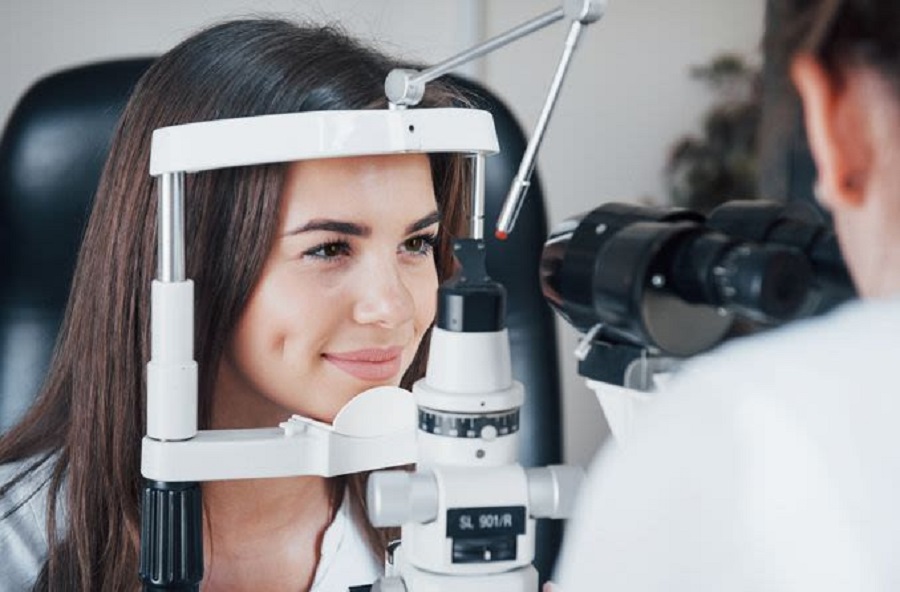Located in the neck, the thyroid gland produces hormones that regulate the body’s metabolism. When abnormal cells in the thyroid gland grow uncontrollably and form a tumor, it results in thyroid cancer. Although thyroid cancer is not common, recognizing its symptoms is crucial for early detection.
This blog will discuss the symptoms of thyroid cancer, its diagnosis, treatment options, and coping strategies.
Understanding the Thyroid Gland
The thyroid gland produces two hormones, thyroxine and triiodothyronine, which regulate the body’s metabolism. The thyroid gland has two types of cells: follicular cells and C cells. Follicular cells produce the hormones, while C cells produce calcitonin, a hormone that regulates calcium levels in the blood.
What is Thyroid Cancer?
Thyroid cancer occurs when abnormal cells in the thyroid gland grow uncontrollably and form a tumor.
There are four types of thyroid cancer:
- papillary
- follicular
- medullary
Symptoms of Thyroid Cancer
Thyroid cancer often has no symptoms in its early stages, and the symptoms may not be apparent until the disease has progressed.
The symptoms and common signs of thyroid cancer include:
- A lump or swelling in the neck
- Pain in the neck or throat
- Hoarseness or difficulty speaking
- Difficulty swallowing or breathing
- Swollen lymph nodes in the neck
- Chronic cough
One of the most significant symptoms of thyroid cancer is a lump or swelling in the neck. This lump may be painless or tender to the touch. It may also grow larger over time and make it difficult to swallow or breathe.
In addition to a lump, other symptoms of thyroid cancer may include pain in the neck or throat, hoarseness or difficulty speaking, and swollen lymph nodes in the neck. These symptoms may also be accompanied by a chronic cough, difficulty swallowing, or breathing.
Less common symptoms of thyroid cancer may include fatigue, weight loss, and changes in bowel habits. These symptoms may be due to an overactive thyroid gland, which can produce excess hormones that increase metabolism and cause weight loss. You can consider taking an At Home Thyroid Test for more surety.
It is important to note that having these symptoms does not necessarily mean that an individual has thyroid cancer. Many other conditions may cause similar symptoms, and a proper diagnosis is necessary to determine the underlying cause. If you experience any of these symptoms, it is essential to seek medical attention immediately.
Moreover, routine check-ups and screenings can help detect thyroid cancer early, even before symptoms are present. Therefore, it is important to maintain regular visits with your doctor and discuss any concerns you may have regarding your health.
Diagnosis of Thyroid Cancer
If your doctor suspects thyroid cancer, they will perform a physical exam, check your medical history, and order diagnostic tests. These may include a thyroid ultrasound, a fine-needle aspiration biopsy, a thyroid scan, or a blood test to measure thyroid hormone levels. Early detection is critical for successful treatment, so it is essential to undergo regular check-ups and screenings.
Treatment of Thyroid Cancer
The treatment options for thyroid cancer depend on the type and stage of the cancer. Surgery is the most common treatment, which involves removing the thyroid gland, and may also involve the removal of nearby lymph nodes. Radiation therapy or chemotherapy may also be used in some cases. The treatment plan will depend on the individual’s health and the stage of the cancer.
Coping with Thyroid Cancer
A thyroid cancer diagnosis can be emotionally challenging. It is essential to have a support system, including family, friends, and healthcare professionals. There are also resources available, such as support groups and counseling services, to help cope with the emotional impact of a thyroid cancer diagnosis.
Conclusion
Thyroid cancer is a serious condition that requires prompt medical attention. Being aware of the symptoms of thyroid cancer and seeking treatment from a qualified and experienced oncologist can help improve outcomes. In India, Cancer hospital in noida and Best Oncologist in Noida are good options to consider for those seeking treatment or advice regarding thyroid cancer. Remember to take care of your health and seek medical attention if you experience any symptoms or concerns related to your thyroid gland.
FAQs:
Q. Who is at risk for developing thyroid cancer?
Answer: Anyone can develop thyroid cancer, but individuals with a family history of thyroid cancer or who have been exposed to radiation are at an increased risk.
Q. What are the treatment options for thyroid cancer?
Answer: Treatment options for thyroid cancer depend on the type and stage of the cancer. Surgery, radiation therapy, and chemotherapy are commonly used.
Q. What is the prognosis for thyroid cancer?
Answer: The prognosis for thyroid cancer varies depending on the stage of the cancer and the individual’s overall health. With early detection and treatment, the outlook for thyroid cancer is generally good.
Q. How can I reduce my risk of developing thyroid cancer?
Answer: There is no sure way to prevent thyroid cancer, but avoiding exposure to radiation and maintaining a healthy lifestyle can reduce your risk. Additionally, regular check-ups and screenings can help with early detection.




